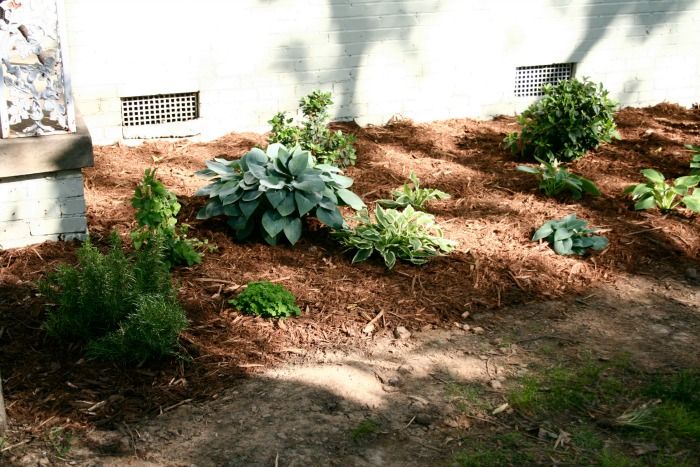For me, releasing a new book into the world is a little bit like birthing a baby. It isn’t long after the release date that people start asking me when I plan on creating another.
This question is both flattering and exhausting – I am thrilled that people want to continue reading my work, but generally I am completely depleted of any and all creative mojo. Also, I need to live between books in order to even have writing material, let alone have the wherewithal to form it into complete and interesting sentences.
But still, each time I have released a book I have found myself slowly slipping, almost unnoticed, into the trap of wanting to have a pleasing answer for everyone who inquires about “what’s next”?
In May, I released my second book, At Home in this Life: Finding Peace at the Crossroads of Unraveled Dreams and Beautiful Surprises, and even though I hadn’t planned on beginning a new book right away, I suddenly found myself obsessing about what I should write about next.
This behavior made about as much sense as trying to name an imaginary someday baby mere hours after naming the one you just gave birth too. It was completely nuts. But this skipping-over-the-moment-in-order-to-fret-over-a-someday-plan was the very soul illness I had written about in At Home in this Life.

I was in danger of missing my here and now life, letting the grass under my feet dry up and turn to dust, while I obsessively scanned the horizon for greener pastures.
It wasn’t until I had one of those rip-the-bandage-off truth telling conversations with my husband Nathan that I realized how dangerously close I was getting to having a pasture full of dead and brittle grass, one that could easily go up in flames at any moment, if I didn’t release my anxiety about what might be, and turn my attention and heart back towards what was.
The hard truth was, before I could move forward with any new ideas or projects, I needed to do a better job of thriving right where I was, working as a team with my family to water and tend to the grass beneath our feet.
A lesson I first learned four years ago, one I write about in At Home in this Life.
What follows is an excerpt from that book:
The day I registered our eldest son Wylie for his last day of junior high, my breathe caught in my chest, and a cold panic began to take over my body—as it hit me how little time we had left with our kids at home. Suddenly we were down to years instead of decades, years I knew would fly by as the boys pulled further and further away.
Sitting at my desk, staring at the Thank You for Registering Your Child notice on my computer, I realized we no longer had the luxury of waiting for someday to happen; someday was here.
Now was the last chance my husband Nathan and I would have to create the family life we had always dreamed of. Whether we were living in a city house (which is where we were) or on a country farm (which is where I wanted to be), on twenty acres or an urban lot: it no longer mattered.
Time was rushing by like a mighty wind, shredding my heart into a thousand little ribbons. If we were going to thrive as family, then we had to get serious about living in the here and now as a family, as a team.
Nathan and I had long wanted our boys to learn the lessons that come from working the land, digging into the earth, and putting shoulder to plow (or peddle to tractor.) We wanted to instill in our boys a respect for hard work they had missed growing up in the city. We wanted them to learn to how to sweat and wrestle and come out the other side proud of what they had accomplished.
I especially wanted to impart the Benedictine monastic philosophy of stewardship: that everything we have is on loan from God, and that, as we care for it, gratefulness and appreciation for all we have been given will grow.
If the chief end of man is to glorify and enjoy God, then I wanted my boys to embrace and explore both aspects. I wanted them to learn what it means to glorify God by working hard to care for the things we have been given; and I wanted them to learn what it’s like to enjoy the fruits of hard work, taking in the knowledge that God’s love and care for them and all of creation far exceeds our love and care of our world and each other—even on our best days.
When I was still holding out hope for a move to the country, I had daydreamed of our family doing farm chores together.
I imagined us driving tractors, harvesting crops, planting wildflower gardens, and pruning fruit trees, basking in both the glory and enjoyment of God’s creation and our place in it.
Apparently, I was under the impression that a change of zip code would result in a change of personality because, as we all know by now, I am not a yard-working, garden-planting, tree-pruning sort of person. But still, this all-hands-on-deck-family-chore fantasy was one I replayed often.
But moving to the country was not happening, our boys were continuing to grow. If we were going to teach our boys these lessons, we had to do so right where we were: on a small neighborhood lot, in the middle of the city.

This is how we found ourselves out back ready to tackle our overgrown yard on a typical Arkansas summer Saturday (read too hot, too humid and too bright.)
Earlier in the morning, Nathan and I had rallied the troops. We ate a hearty breakfast, we dug out gloves, we brushed cobwebs off rakes and loppers, and we covered ourselves with a haze of bug spray.
We were prepared to do some hard labor as a family. We were going to learn the value of sweat equity and enjoy God forever. Go team!
Within five minutes, Wylie had poked a hole in our classy blow-up pool, Miles had overheated, and I was literally lost in the weeds.
Nathan had handed me some sort of yard tool and told me to get rid of “those vines,” but I felt as if I had been dropped in the middle of a Project Runway challenge with only one needle. No, scratch that. I know I could figure out a Project Runway challenge.
This was more like being dropped in the middle of a physics class with only a Tolstoy novel for help. I felt useless, foolish, ill-equipped, and out of my depth. We had barely begun and the boys and I were deflated and dejected. And Nathan (the one family member who excels at manual labor) was frustrated with us all.
After a few half-hearted attempts to cut down the vines, I threw in the rake, and retreated to the indoors and projects I understood: laundry, sweeping, cooking.
Soon I heard the screen door slam and saw one boy dash through the kitchen on his way to the bathroom, not long after, the second boy walked through mumbling something about needing a new pair of socks.
Each of us, with very legitimate excuses mind you, had managed to sneak our way back indoors to the easy life of air conditioning, leaving Nathan to tackle the vines and the punctured pool alone.
During lunch standing at the kitchen bar, Nathan said the thing neither of us had wanted to admit: “We don’t need a farm. We aren’t ready for a farm. Our house is a disaster and we can’t even work on our little city lot together without it devolving into tears, meltdowns, and me working alone.”
I hated that he said it—mostly because it was true. Our family was a big bag of mixed motives, bad communication, unclear expectations, and confusion. We were no better at working in our backyard than the people in the book of Genesis were at building the tower of Babel.
We wanted what was comfortable and familiar, and frankly, what was easy. We wanted the perfect Instagram life—the one where all the mess is cropped out and a filter makes everything look charming.
But no life is that curated, not if it is alive and flourishing.
Real life—the good life, a whole life, the kind of life we were so desperate for— is messy, and long, filled with hard work and sacrifice. And, most importantly, this kind of real life can only be lived out in community and mutual support.
Just as the Velveteen Rabbit became “real” after a life of being worn down by the one who loved him most, so we become real when we live life together, facing both the joys and the hardships together, sharing in moments of laughter, tears and sweat.
Which is why, when our family attempted to do manual labor together, our plans were doomed before we ever began. Except for Nathan, no one was willing to sacrifice their comfort.
The boys and I had not even a smidgen of a grateful heart about the idea. Nowhere in my spirit was I doing the work as unto God. I was not hacking vines with a spirit of gladness; I did not approach our chores as a sacred endeavor.
That day in the backyard, Nathan and I also had failed as leaders, as parents, as a team. We were not doing the work with one accord. We had gone in our own directions, leaving the other to flail about on their own; and our frustrations with each other was palpable.
“Complaining is the acid that shrivels our souls and the soul of the community around us as well,” wrote Joan Chittister in her exposition, The Rule of Benedict: A Spirituality for the 21st Century. That day our souls and our family community were shriveled to the size of raisins.
Nathan and I had done a lousy job of being team leaders. We had not been supportive or encouraging; we had not stopped to help one another; we had not practiced what St. Benedict called “mutual obedience.”
We had not sought to serve one another without grumbling; we had not sought to lighten each other’s burdens.
So when Nathan said we were not ready for a farm, I knew he was right, but I wasn’t ready to admit it out loud. I wasn’t ready to admit defeat or failure.
But it was the truth, and the seed of it nestled deep down inside me for months as I wrestled with the knowledge that before we could move forward we would have to do a better job of thriving right where we were….

Excerpt taken from Chapter 11: Manual Labor, Restoration and Thriving in At Home in this Life: Finding Peace at the Crossroads of Unraveled Dreams and Beautiful Surprises by Jerusalem Jackson Greer, Published by Paraclete Press 2017



